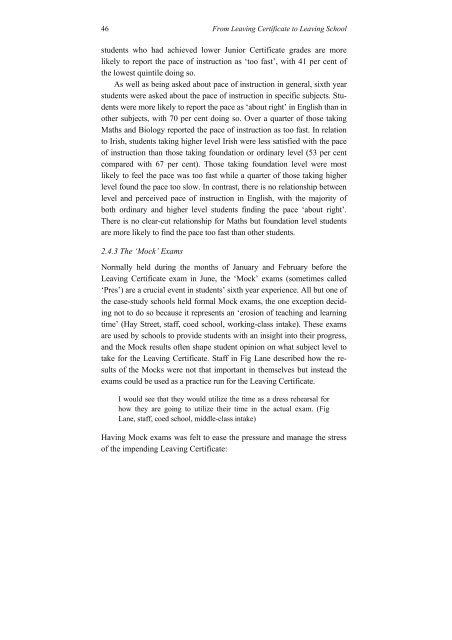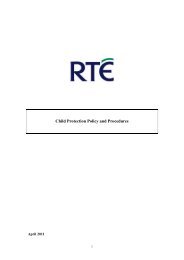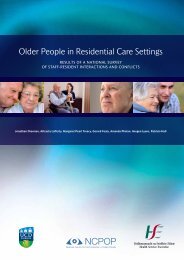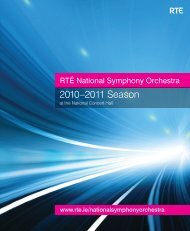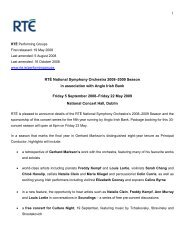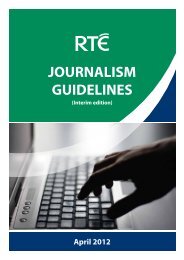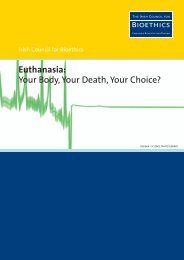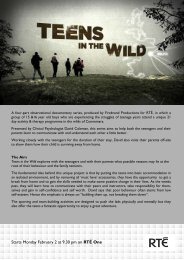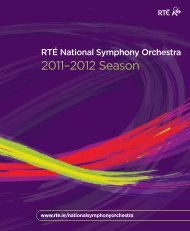From Leaving CertiFiCate to Leaving SChooL a Longitudinal Study ...
From Leaving CertiFiCate to Leaving SChooL a Longitudinal Study ...
From Leaving CertiFiCate to Leaving SChooL a Longitudinal Study ...
You also want an ePaper? Increase the reach of your titles
YUMPU automatically turns print PDFs into web optimized ePapers that Google loves.
46<br />
<strong>From</strong> <strong>Leaving</strong> Certificate <strong>to</strong> <strong>Leaving</strong> School<br />
students who had achieved lower Junior Certificate grades are more<br />
likely <strong>to</strong> report the pace of instruction as ‘<strong>to</strong>o fast’, with 41 per cent of<br />
the lowest quintile doing so.<br />
As well as being asked about pace of instruction in general, sixth year<br />
students were asked about the pace of instruction in specific subjects. Students<br />
were more likely <strong>to</strong> report the pace as ‘about right’ in English than in<br />
other subjects, with 70 per cent doing so. Over a quarter of those taking<br />
Maths and Biology reported the pace of instruction as <strong>to</strong>o fast. In relation<br />
<strong>to</strong> Irish, students taking higher level Irish were less satisfied with the pace<br />
of instruction than those taking foundation or ordinary level (53 per cent<br />
compared with 67 per cent). Those taking foundation level were most<br />
likely <strong>to</strong> feel the pace was <strong>to</strong>o fast while a quarter of those taking higher<br />
level found the pace <strong>to</strong>o slow. In contrast, there is no relationship between<br />
level and perceived pace of instruction in English, with the majority of<br />
both ordinary and higher level students finding the pace ‘about right’.<br />
There is no clear-cut relationship for Maths but foundation level students<br />
are more likely <strong>to</strong> find the pace <strong>to</strong>o fast than other students.<br />
2.4.3 The ‘Mock’ Exams<br />
Normally held during the months of January and February before the<br />
<strong>Leaving</strong> Certificate exam in June, the ‘Mock’ exams (sometimes called<br />
‘Pres’) are a crucial event in students’ sixth year experience. All but one of<br />
the case-study schools held formal Mock exams, the one exception deciding<br />
not <strong>to</strong> do so because it represents an ‘erosion of teaching and learning<br />
time’ (Hay Street, staff, coed school, working-class intake). These exams<br />
are used by schools <strong>to</strong> provide students with an insight in<strong>to</strong> their progress,<br />
and the Mock results often shape student opinion on what subject level <strong>to</strong><br />
take for the <strong>Leaving</strong> Certificate. Staff in Fig Lane described how the results<br />
of the Mocks were not that important in themselves but instead the<br />
exams could be used as a practice run for the <strong>Leaving</strong> Certificate.<br />
I would see that they would utilize the time as a dress rehearsal for<br />
how they are going <strong>to</strong> utilize their time in the actual exam. (Fig<br />
Lane, staff, coed school, middle-class intake)<br />
Having Mock exams was felt <strong>to</strong> ease the pressure and manage the stress<br />
of the impending <strong>Leaving</strong> Certificate:


